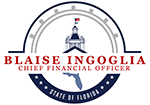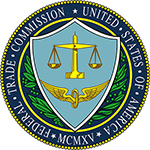Fraud and Scams
Fraud, scams, and identity theft can happen to anyone—but military personnel and veterans are especially at risk. Frequent moves, overseas deployments, and transitioning to civilian life make personal information a prime target for scammers. Protect yourself by stopping fraud before it starts: follow the Three D’s of identity protection—Deter, Detect, and Defend.
- Leave personal identification information at home unless you need it. For example, you do not need your passport unless you are traveling outside of the country.
- Avoid giving others your Social Security number and do not provide personal information to individuals over the phone unless you initiated the contact.
- Use a locked mailbox or post office box for incoming mail. Avoid placing outgoing mail in your mailbox with the flag up.
- Use the longest PIN allowed. Avoid sequential numbers and keypad patterns. Don’t use personal data, such as birth dates, addresses or vehicle numbers. Don’t reuse PINs and change them regularly. Avoid writing PINs and passwords down.
- Use a password manager to create and securely store strong, unique passwords for each of your accounts. If you prefer to create your own, choose a minimum of 12–16 characters (the longer, the better) and include a mix of uppercase and lowercase letters, numbers, and symbols. Never share or reuse passwords and update them regularly. Avoid writing them down or storing them anywhere outside a trusted password manager.
- Set up multi-factor authentication when possible. This offers extra security by requiring two or more credentials to log into your account, like a pass code you receive via your phone or a scan of your fingerprint or face.
- Use a cross shredder to shred your personal information. A cross shredder is better than a vertical shredder because paper is cut into small pieces instead of strips that can be pieced back together.
- Federal law gives you the right to request a free copy of your credit report be mailed to you every 12 months from each of the three nationwide credit bureaus, Equifax, TransUnion and Experian. In addition, the three bureaus have permanently extended a program that lets you check your credit report online, once a week, for free. To obtain your reports, visit AnnualCreditReport.com or call 1-877-322-8228. To protect your credit information, you will undergo a verification process; be sure to have your records on hand. Avoid other websites claiming to offer free credit reports — they may be scams. AnnualCreditReport.com is the only federally authorized place to get free credit reports.
- Review your credit reports for errors and inaccuracies. Look for signs of identity theft such as additional addresses, accounts or lines of credit that you didn’t initiate. Dispute anything you don’t recognize. If you spot mistakes, read Disputing Errors on Your Credit Reports by the Federal Trade Commission for bests steps to take.
- Review your monthly bank accounts and credit card statements. Identity thieves may try to charge small amounts that they hope you won’t notice. If you see unfamiliar charges on your accounts, contact your financial institution immediately.
Who can place one: Anyone can freeze their credit report, even if their identity has not been stolen.
What it does: A credit freeze restricts access to your credit report, which means you — or others — won’t be able to open a new credit account while the freeze is in place. You can temporarily lift the credit freeze if you need to apply for new credit. When the freeze is in place, you will still be able to do things like apply for a job, rent an apartment, or buy insurance without lifting or removing it.
Duration: A credit freeze lasts until you remove it.
Cost: Free
How to place: Contact each of the three credit bureaus — Equifax, Experian, and TransUnion.
Who can place one: Anyone who suspects fraud can place a fraud alert on their credit report.
What it does: A fraud alert will make it harder for someone to open a new credit account in your name. A business must verify your identity before it issues new credit in your name.
When you place a fraud alert on your credit report, you can get a free copy of your credit report from each of the three credit bureaus.
Duration: A fraud alert lasts one year. After a year, you can renew it.
Cost: Free
How to place: Contact any one of the three credit bureaus — Equifax, Experian, and TransUnion. You don’t have to contact all three. The credit bureau you contact must tell the other two to place a fraud alert on your credit report.
Who can place one: An extended fraud alert is only available to people who have had their identity stolen and completed an FTC identity theft report at IdentityTheft.gov or filed a police report.
What it does: Like a fraud alert, an extended fraud alert will make it harder for someone to open a new credit account in your name. A business must contact you before it issues new credit in your name.
When you place an extended fraud alert on your credit report, you can get a free copy of your credit report from each of the three credit bureaus twice within one year from when you place the alert, which means you could review your credit report six times in a year.
In addition, the credit bureaus will take you off their marketing lists for unsolicited credit and insurance offers for five years, unless you ask them not to.
Duration: An extended fraud alert lasts seven years.
Cost: Free
How to place: Contact any one of the three credit bureaus — Equifax, Experian, and TransUnion. You don’t have to contact all three. The credit bureau you contact must tell the other two to place an extended fraud alert on your credit report.
Who can place one: Active-duty service members can place an active-duty fraud alert.
What it does: An active-duty fraud alert will make it harder for someone to open a new credit account in your name. A business must verify your identity before it issues new credit in your name.
In addition, the credit bureaus will take you off their marketing lists for unsolicited credit and insurance offers for two years, unless you ask them not to.
Duration: An active-duty fraud alert lasts one year. After a year, you can renew it for the length of your deployment.
Cost: Free
How to place: Contact any one of the three credit bureaus — Equifax, Experian, and TransUnion. You don’t have to contact all three. The credit bureau you contact must tell the other two to place an active-duty fraud alert on your credit report.
Active duty service members can get free electronic credit monitoring, which can detect problems that might be the result of identity theft. To sign up, contact each of the three credit bureaus — Equifax, Experian, and TransUnion.
Report any problem as soon as possible at IdentityTheft.gov, and follow the steps, including filing a fraud alert and obtaining a copy of your credit report to review.
Below is the contact information for each of the three credit bureaus:
Equifax
P.O. Box 105069
Atlanta, GA 30348-5069
1-800-685-1111
Equifax.com
Experian
P.O. Box 4500
Allen, TX 75013
1-888-397-3742
Experian.com
TransUnion
P.O. Box 2000
Chester, PA 19016
1-800-916-8800
TransUnion.com
There are many lawful charities that solicit donations to support our nation’s military veterans, as well as active-duty personnel. Beware! Just because a charity uses words like “veterans” or “military families” in their name, doesn’t mean it’s a legitimate organization. Scam artists will also use a name similar to those of a well-known business, relying on its familiarity to get you to donate. Before you give money to an organization, do your homework. Visit the organization’s website and research their name on the internet for any accounting of fraud. You can find a list of registered charities in Florida by visiting the Department of Agriculture and Consumer Services Check-a-Charity website.
Active-duty servicemembers with significant credit card debt are common targets of credit repair scams. Scammers promise to boost your credit score or erase bankruptcies and liens, but there’s no quick fix for bad credit. By law, credit repair companies can’t charge fees until their services are complete.
Instead, seek help from a financial counselor at your military installation—they can review your credit report and help dispute errors for free. Remember, only time removes negative information: most stays on your report for seven years, and bankruptcies for ten. Before deploying, consider freezing your credit—since July 1, 2018, credit freezes are free at all credit reporting agencies.
Servicemembers and veterans using the GI Bill may be targeted by deceptive marketers promoting costly, for-profit schools. These ads often misuse terms like “GI Bill” and “Armed Forces” to appear legitimate. Some of these schools lack accreditation, meaning credits may not transfer.
Use the U.S. Department of Veterans Affairs GI Bill Comparison Tool to research schools, confirm benefits, and ensure your education is worth the investment. The tool also helps employers connect with qualified servicemembers and veterans.
Loan companies near military installations often target servicemembers and veterans with promises of instant approval or no credit check. These loans usually carry extremely high interest rates and hidden fees. Legitimate lenders never guarantee loans before approval, and any loan requiring an upfront fee is likely a scam.
Credit unions near military bases often offer short-term loans at competitive rates, and service relief organizations may provide interest-free loans. Visit Military OneSource for information on emergency financial help.
| Army Emergency Relief | Navy-Marine Corps | Air Force Aid Society |
Scammers often pose as someone you trust—government officials, family members, charities, or businesses—to pressure you into giving money or personal information. They may call, email, or text, sometimes claiming to be from the IRS or another agency to steal your Social Security number or request payment via gift cards or wire transfers.
Never share personal information over the phone. Legitimate agencies and businesses will never ask for payment with gift cards or wire transfers. If you’re unsure, hang up and contact the agency directly using official contact information.
A sense of urgency is a red flag.Military homeowners seeking mortgage assistance should be wary of companies that ask for fees to secure loan modifications or stop foreclosure. Some falsely claim ties to the government or non-profits. By law, mortgage relief companies cannot charge until you receive and accept a written offer from your lender.
If you’re struggling with payments, start with your lender—they can guide you to legitimate help. You can also find information about benefits and protections you current or past military service provides at the Consumer Financial Protection Bureau.Veterans 65 and over are targeted by shady financial advisers persuading them to transfer their pensions into a special trust while charging excessive fees. The advisers claim to help veterans qualify for Aid and Attendance benefits, but this may cause them to lose eligibility for Medicaid or prevent access to their pension for several years.
Only the U.S. Department of Veterans Affairs, Veterans Benefits Administration can award benefits. To avoid becoming a victim of the Veteran Pension Poaching Scam, do not quickly approve changes to your pension. If you are interested in Aid and Attendance benefits, you can apply free of charge through the U.S. Department of Veterans Affairs.
Scammers often use emails or text messages to trick you into sharing personal information, such as passwords, account numbers, or Social Security numbers, so they can access your email, bank, or other accounts. These phishing messages may appear to come from reputable companies or government agencies and often include a story designed to get you to click a link or open an attachment.
Tips to stay safe:
- Don’t click links in emails or texts. Only enter personal or financial information on a website you’ve typed in yourself. Look for a closed padlock symbol or “https” in the browser address bar to confirm the site is secure.
- Be cautious with attachments or downloads from emails—they may contain viruses or malware that can compromise your personal information or damage your device.
- Keep your devices updated with the latest software and security updates.
- Use security software and keep it current.
- Enable multi-factor authentication whenever possible.
- Back up your data regularly to protect against loss.
Scammers know that military experience is attractive to employers and use this to their advantage. They may post fake job listings on online platforms and job boards, or contact you via phishing emails, phone calls, and texts, aiming to collect personal or financial information for identity theft.
To protect yourself:
- Verify employers before submitting online applications. Contact the company directly to confirm they are hiring.
- Be cautious with requests for bank information. Phony recruiters may ask for direct deposit details but intend to steal your money.
- Check testimonials and references. Only trust information you can independently verify.
- Learn from real cases. Visit the Better Business Bureau Job Scams Study to see real-life examples of employment scams.
This scam often takes place on dating websites or social media. Scammers create fake profiles with attractive photos to gain your interest. Over time, they may ask for money to cover expensive items such as medical bills, education costs, or internet and phone expenses, claiming it’s necessary to continue the relationship. The scam usually ends when the victim realizes what’s happening or stops sending money.
How to protect yourself:
- Be cautious with personal information. Limit what you share on social networks.
- Verify details. Use search engines to check photos, credentials, and other information. Conflicting details may reveal a scam or show that the information was previously used to target someone else.
- Seek a second opinion. Talk to a trusted friend or family member if you’re unsure about a relationship—they can provide an unbiased perspective. It’s a big red flag if the person you are communicating with tells you not to trust your family and friends.
Be cautious of offers claiming exclusive deals or discounts for veterans and servicemembers. Scammers use these “special deals” to trick military personnel into giving them money, often for items that aren’t actually available.
For example, a landlord might advertise a rental property with a discount for veterans, then ask you to wire a deposit to secure it. Always be careful. While some organizations do provide genuine discounts, verify any offer before committing and never wire money to someone you don’t know.
Consumer Financial Protection Bureau - Office of Servicemember Affairs (OSA)
Servicemembers should be able to accomplish their mission without worrying about illegal or harmful financial practices. The Office of Servicemembers Affairs is here to ensure that military personnel and their families have a voice at the Consumer Financial Protection Bureau.
Federal Trade Commission - Military Consumer Protection
The Federal Trade Commission recognizes the unique challenges servicemembers and their families face managing their finances and personal information. Servicemembers are at an increased risk for identity theft because of frequent moves and overseas deployment. Here you will find information to protect your identity.
Internal Revenue Service Identity Protection PIN (IP PIN)
Request an IP PIN for an added layer of protection against identity theft. This 6-digit IP PIN is assigned to eligible taxpayers and helps prevent the misuse of their Social Security number on fraudulent federal income tax returns.
Military One Source is a Department of Defense funded program providing a variety of information on every aspect of military life. Topics include, but are not limited to; deployment, finances, spouse employment, children services and education.




